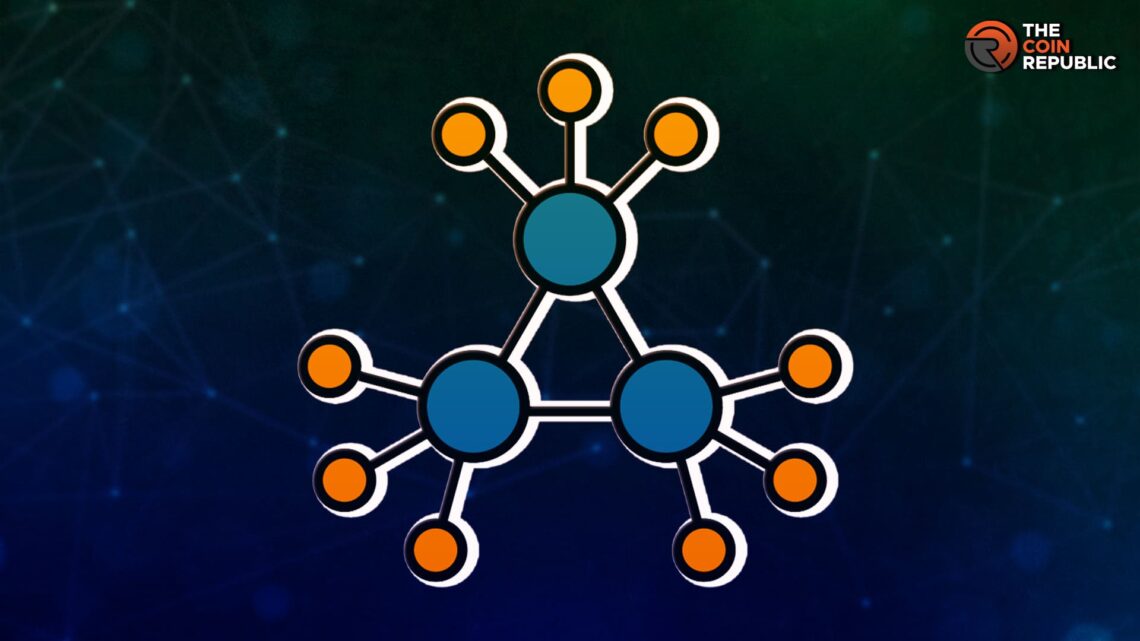- 1 Decentralized Derivatives are the means by which investors and users can link commodities to their DeFi and conduct their trade.
- 2 We will be discussing the importance of decentralized derivatives in cryptocurrencies. The type of decentralized derivatives and how they work
Decentralized derivatives are growing financially; they are traded in a decentralized financial market. With the allowance from DeFi, they are able to be traded, and investors and users can earn with Decentralized Derivatives. This has increased the use of DeFi. In this article, we are going to look at decentralized derivatives and how they have developed.
What Are Decentralized Derivatives?
Decentralized derivatives are typically used in DeFi. They derive assets from underlying stocks. These stocks are traded on the blockchain. In the future, we can think of decentralized derivatives as a negotiation or deal between two individuals on a certain asset value.
Decentralized derivatives are neither owned nor controlled by centralized authorities. These enable individuals to easily access its services. The fact that it’s a decentralized system enables transactions to occur without involving intermediaries or third parties. Therefore, users are not controlled by where their assets can be placed in DeFi protocols. This also assures easy withdrawals of liquid money.
Users have the ability to channel their crypto wallets to DeFi, providing easy accessibility to Derivatives. The derivative contracts enable traders to acquire profits from asset movements. However, it’s important to understand that cryptocurrencies are volatile, and risk management should be taken while trading these assets.
Classifying Decentralized Derivatives
Decentralized derivatives, as stated before, operate under the DeFi smart contract. But there are different types of decentralized derivatives. We are taking a look at two types of decentralized derivatives. How these derivatives have propelled finance in DeFi.
The first example is decentralized synthetic assets. This derivative allows individuals to have a number of stocks, but they don’t own them. For instance, DApps like Swap allow users to exchange these assets under certain conditions. This increases pool liquidity, and users can also acquire different techniques to trade these assets.
Another example is decentralized futures contracts, which give users authority over how to conduct their trading. Users are allowed to agree on when to purchase or sell their assets. They agree on the time when these assets’ value will increase. This enables these traders to manage their risk while securing their assets.
How Decentralized Derivatives work
Decentralized Derivatives function without the need for intermediaries, unlike traditional financial institutions. The financial assets are exchanged in DeFi by the power of smart contract blockchain. The derivatives are usually stocks, cryptocurrencies or even commodities like oil and gold.
Therefore, decentralized derivatives through blockchain technology allow traders to execute their trades. Decentralized Derivatives work through various procedures.
For instance, derivatives are necessities in Decentralized derivatives; this allows users to acquire assets that are needed by DeFi traders to execute their trading activities. This transaction or trading activity occurs on decentralized cryptocurrency platforms, which are supported due to their decentralized nature.
Transactions are made through smart contract technology. Here, smart contracts are authorized to execute transactions through encoded codes. Transactions are made between parties under agreements that are enforced by smart contracts. These provide secure, honest and transparent transactions.
Moreover, peer-to-peer transactions are made in Decentralized derivatives. P2P allows the selling and buying of assets or derivatives in Decentralized finance. Software programs allow users to do P2P transactions with the help of smart contracts.
Liquidity in derivatives is easy. For instance, transactions in liquidity are made easier for traders, who can open and close orders since they have the ability to set records for when markets have buyers and sellers and how many buyers and sellers are in the market. Typically, a liquid market attracts buyers and sellers since the risks are lower in the liquid pool.
The assets provide investors and users with a risk management plan. Stocks are high; investors should learn this before trading their assets. Decentralized derivatives usually offer transparency and easy accessibility to stocks. Traders are provided with assets that they can trade.
DeFi Wallet provides these commodities, giving traders and investors options to trade and stake, respectively. Decentralized derivatives nature enables easy transactions while eliminating intermediaries or exchanges and high transaction costs.
Cons of Using Decentralized Derivatives
Technology is created by humans, and errors don’t miss any work. There are various limitations that come with decentralized derivatives. These derivatives have profits for investors, but they can also have losses for investors. We will be discussing what problems are created when using decentralized derivatives.
The stock markets are vulnerable; for instance, smart contracts that support decentralized derivatives are vulnerable and can be hacked easily. Its Decentralized nature might lead to Investors losing their money due to its volatility. It does not have specific governance for investors and traders. This decentralized derivatives technology is growing, but not everybody can acquire these derivatives, meaning investors are restricted, and as stated in the beginning, you don’t own these stocks.
The number of users using these decentralized derivatives is not large. Not everyone knows what decentralized derivatives are or what they bring to the table. This lack of interaction is due to its complexity. The fact that it’s costly in terms of transactions on the blockchain makes fewer users use it.
Conclusions
We now understand what decentralized derivatives are and where they are used. With the help of these stocks, decentralized applications have gained popularity. Users and investors can now use the stocks to earn cryptocurrencies. There are possibilities for how they can link their crypto wallets through DeFi.
Traders can execute their trades with derivatives on blockchain networks. Its decentralized system enables smart contracts to execute these trades, and the decentralized derivatives also provide traders with information on when to go long or short in their trades.

Nancy J. Allen is a crypto enthusiast, with a major in macroeconomics and minor in business statistics. She believes that cryptocurrencies inspire people to be their own banks, and step aside from traditional monetary exchange systems. She is also intrigued by blockchain technology and its functioning. She frequently researches, and posts content on the top altcoins, their theoretical working principles and technical price predictions.


 Home
Home News
News










